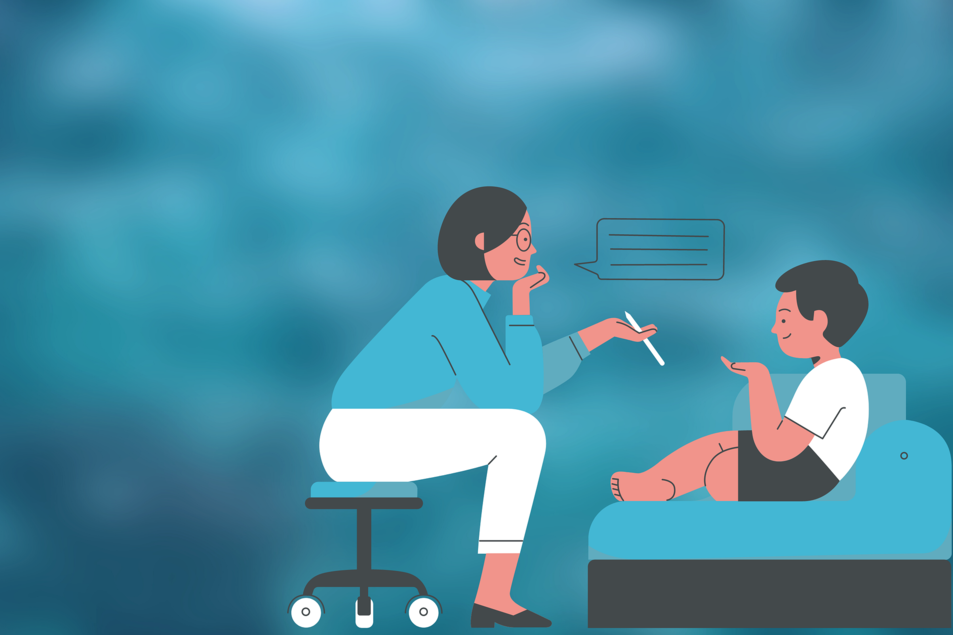To the extent that, in the past, children were dressed like adults and had to work alongside adults in the mainstream workforce, children have historically been considered mini-adults. Child psychology was, therefore, an alien concept.
A parent can find being able to observe their child’s development to be one of the most rewarding aspects of being a parent. To learn your child’s perspective, teach them new skills, and mentor them as they experience new feelings and changes is an integral part of parenting, but it’s not easy.
From birth into adulthood, your child goes through progressive stages of development. Children’s development can be affected by a variety of factors, including the environment, genetics, and culture. Children have difficulty explaining what they are experiencing, let alone analyzing their feelings. Child psychology can help you in becoming a better parent and child psychologists can provide you with highly valuable and important information in this regard.
Table of Contents
What is Child Psychology?
The study of child psychology focuses on children’s subconscious and conscious development. To understand a child’s mental development, child psychologists observe how he interacts with his parents, himself, and the world.
Child psychology for parents is a quintessential thing to learn in the present era and the major goal of understanding child psychology is to observe the behavior and mind of children and keep a close eye on their development, both physically and emotionally.
Why Is Child Psychology Important?
Although all parents want their child to grow up healthy, it can be hard to determine whether their child’s behavior is a sign of a normal stage in development or an abnormal one. Child psychology can assist you in determining whether your child is being normal or abnormal. Parents can learn and teach their child coping mechanisms for managing emotions by understanding the normal and abnormal psychological patterns of their child, giving and taking motivation in child development, and helping their child progress and thrive at every developmental stage by understanding the normal and abnormal psychological patterns of their child.
In addition, child psychologists are adept at identifying abnormal behaviors early on, enabling them to detect the roots of common behavioral issues such as learning difficulties, hyperactivity, or anxiety, and assisting children with early childhood trauma. Additionally, they assist in the prevention, evaluation, and diagnosis of developmental delays or abnormalities, such as autism. Also, Read : The Way We Talk To Child Will Become Their Inner Voice- 5 Things To Know Now
The study of child psychology examines the interplay between a few key areas of development:
1. Growth and Development
Children’s physical development typically follows a predictable course. As your child grows, they will hold their heads up, roll over, crawl, walk, and run. Using the services of a Child Psychologist, your pediatrician can observe how your child is developing physically, and if any abnormalities are visible that could indicate an abnormal development. Your child’s physical development will be monitored by Child Psychologists to ensure that he or she is on track. Physical delays may lead to underlying developmental issues that can be treated at an early age if they are detected early. Significant facts about development can be clearly understood and differentiated with the help of child psychology. Also, take a look at Ways to identify social anxiety in your kids
2. Development of Cognitive Skills
Recent years has seen significant progress in understanding how the brain develops during childhood. New research shows that even newborn babies are aware of and interested in their environment, even before they learn to speak.
A child’s cognitive development refers to how they learn intellectually and how they think. Children’s ability to observe and comprehend the world around them, how they learn the language, their memory, their decision-making skills, their problem-solving abilities, and their ability to use basic reasoning positively are considered. Children’s genetics and environment both play a significant role in these factors.
3. Development of the Social and Emotional self
There is a close relationship between emotional and social development. As a child develops emotionally, they learn how to understand, express, and deal with their emotions. Young children develop their emotional capabilities by expressing basic emotions such as fear, joy, anger, and sadness. During development, the child experiences more complex emotions such as pride, confidence, hope, and guilt. Empathy is also part of a child’s emotional development, as it enables him/her to feel and understand the emotions of others. Many children struggle with regulating and expressing their emotions appropriately.
Early emotional education can have a profound impact on children’s emotional development today and in the future. Your child can benefit from the guidance of a child psychologist and learning child psychology.
Social development is heavily influenced by emotional development. A child’s ability to comprehend, identify, and express their feelings directly impacts their social interactions. As a child develops social skills, he or she gains knowledge, awareness, and values that allow them to interact with the people around them; their parents, peers, authorities, and animals. Developing age-appropriate social skills depends in large part on children’s early relationships. As a result of social development, trust, friendship, conflict management, and respect for authority can be observed.
Conclusion
To build a healthy relationship with your children, you have to understand and consider all of the factors listed above. In addition to helping your kids be the best versions of themselves, you can also help them with child psychology facts to overcome any early childhood traumas they may have experienced.
Isn’t the ultimate goal of parenting to ensure that your child thrives and is happy at every developmental stage?



